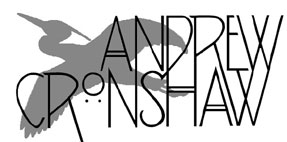
- Andrew Cronshaw website -
- Andrew Cronshaw MySpace -
- Cloud Valley Music website -
- Andrew Cronshaw website -
- Andrew Cronshaw MySpace -
- Back to Reviews Introduction page -
Written in
fRoots
issue 337, 2011
SÖNDÖRGÖ
Tamburising – Lost Music Of The Balkans
World Village 450017 (2010)
The tambura is a fretted instrument found in the Balkans, where its progenitors
arrived centuries ago from the direction of Iran and Turkey. In Bulgaria and
Macedonia it’s largely a solo or song-accompanying instrument, but in former
Yugoslavia in the mid 19th century tambura bands arose, causing the development
and evolution of a range of different sized instruments, all played with
plectrums. The small lead tamburas usually have a teardrop-shaped soundbox while
the larger, accompanying ones have become guitar-shaped, and the bass looks
something like a double bass but with frets and a flat bridge.
Tambura bands multiplied, with some expanding to big
arranged orchestras attached to cities or national radios, but over recent
decades their number has been diminishing, the gigging bands depressingly often
replaced at festivities and on Adriatic holiday hotel terraces by duos dribbling
pop-schlock on keyboards and sequencers.
Söndörgö, though, is bucking the trend. It’s a hot
tambura quintet, with the ability to switch to equally smart kaval, accordion,
frula, clarinet, sax, trumpet, derbuka and tapan. Hungarian Serbs from the town
of Szentendre north of Budapest, four of the band, the Eredics brothers, are the
sons of Kálmán Eredics, bassist with well-known Hungarian Serbian tambura band
Vujicsics.
The band was mighty impressive at May’s
Hangvetö-directed “World Music From Home” showcase concert at Budapest’s Palace
of Arts, and appears in London in late June. The CD, recorded in Serbian tambura
heartland in Novi Sad, gives a good sense of their capabilities. They’re joined
on some tracks by leading elder tambura player Jószef Kovács, and for couple of
songs each by the very strong female singer Kátya Tompos, who was a highlight of
the Budapest concert, and the larynx-straining ecstatic male vocals of Roma
singer Antal Kovács from the band Romano Drom.
The material is mostly Serbian, some of it Roma, with
an occasional touch of the influence of Croatian tambura bands, moving to
Macedonian and the non-tambura instruments for the final three tracks. The
earlier part of the album is largely played, with masterly fluency, on the
tamburas, but the band’s Salamon Eredics also delivers a snappy lead on frula,
the wooden whistle, for one of the several kolos (tunes for the ever-popular
Serbian circle-dance), and on accordion leads a Serbian song tune that fades in
and out, slightly oddly but as a contrasting insert between tambura tracks.
www.worldvillagemusic.com,
www.sondorgo.com
© 2011 Andrew Cronshaw
You're welcome to quote from reviews on this site, but please credit the writer
and fRoots.
Links:
fRoots - The feature and
review-packed UK-based monthly world roots music magazine in which these reviews
were published, and by whose permission they're reproduced here.
It's not practical to give, and keep up to date,
current contact details and sales sources for all the artists and labels in
these reviews, but try Googling for them, and where possible buy direct from the
artists.
CDRoots.com in the USA, run by
Cliff Furnald, is a reliable and independent online retail source, with reviews,
of many of the CDs in these reviews; it's connected to his excellent online magazine
Rootsworld.com
For more reviews click on the regions below
NORDIC
BALTIC
IBERIA (& islands)
CENTRAL & EASTERN EUROPE, & CAUCASUS
OTHER EUROPEAN AMERICAS OTHER, AND WORLD IN GENERAL
- Back to Reviews Introduction page -